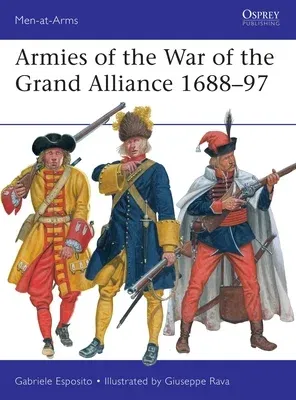Gabriele Esposito
(Author)Armies of the War of the Grand Alliance 1688-97Paperback, 26 October 2021

Qty
1
Turbo
Ships in 2 - 3 days
Only 5 left
Free Delivery
Cash on Delivery
15 Days
Free Returns
Secure Checkout

Part of Series
Men-At-Arms (Osprey)
Print Length
48 pages
Language
English
Publisher
Osprey Publishing (UK)
Date Published
26 Oct 2021
ISBN-10
1472844351
ISBN-13
9781472844354
Description
Product Details
Author:
Book Format:
Paperback
Country of Origin:
US
Date Published:
26 October 2021
Dimensions:
24.41 x
18.01 x
0.41 cm
Illustrator:
ISBN-10:
1472844351
ISBN-13:
9781472844354
Language:
English
Location:
New York
Pages:
48
Publisher:
Series:
Weight:
158.76 gm